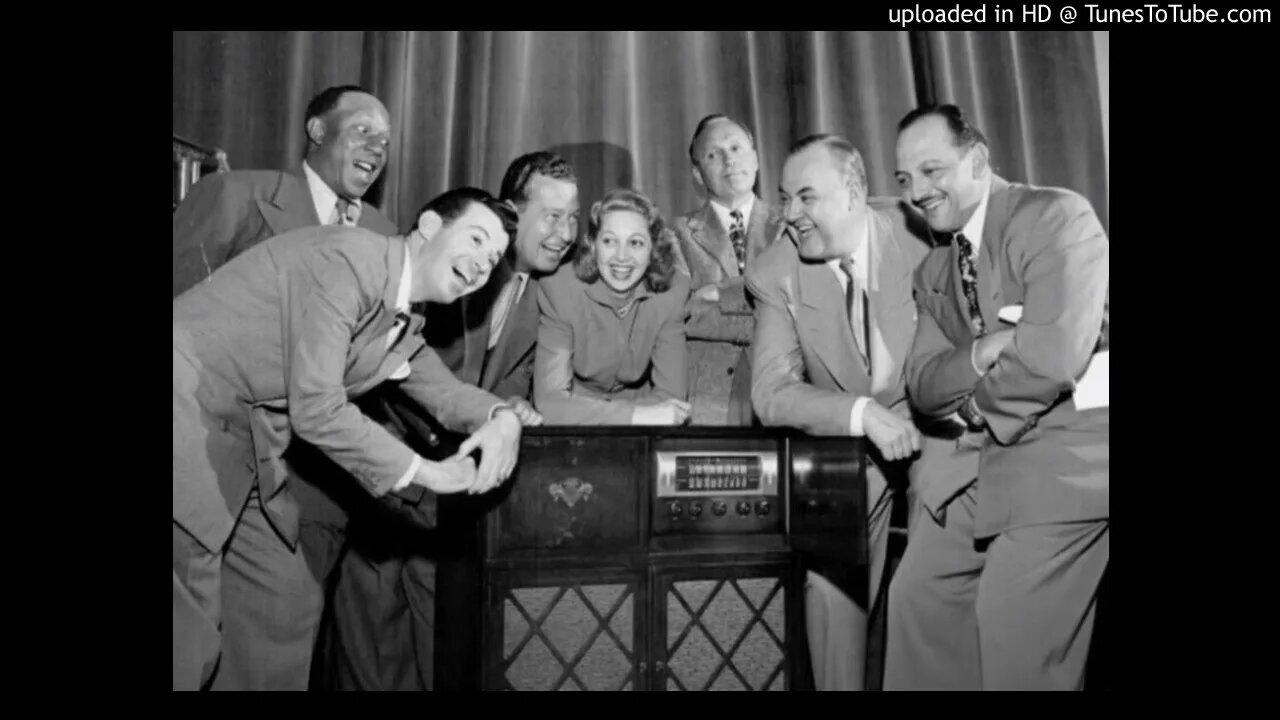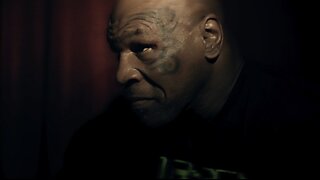Premium Only Content

Jack Gets Held Up - $85,000 Bet - Jack Benny Show
The Jack Benny Program, starring Jack Benny, is a radio-TV comedy series that ran for more than three decades and is generally regarded as a high-water mark in 20th-century American comedy.
Jack Benny – played himself. Protagonist of the show, Benny is a comic, vain, penny-pinching miser, insisting on remaining 39 years old on stage despite his actual age, and often playing the violin badly.
Eddie Anderson – Rochester Van Jones, Jack's valet and chauffeur. Early in the show's run, he often talked of gambling or going out with women. Later on, he generally complained about his salary.
Don Wilson – Himself. Don generally opened the show and also did the commercials. He was the target of Jack's jokes, mostly about his weight.
Gene McNulty – Dennis Day, a vocalist perpetually in his 20s (by the time of the last television series, McNulty was 49 years old). He was sweet but not very bright. When called upon, he could use a wide variety of accents, which was especially useful in plays. He usually sang a song about 10 minutes into the program. If the episode was a flashback to a previous time, a ruse would be used such as Dennis singing his song for Jack so he could hear it before the show. McNulty adopted the name "Dennis Day" as his stage name for the rest of his career.
Sadie Marks – Mary Livingstone, a sarcastic comic foil whose varying roles all served as, to use the description of Fred Allen, "a girl to insult (Jack)." Marks, who in real life was Benny's wife, later legally changed her name to "Mary Livingstone" in response to the character's popularity. Her role on the program was reduced in the 1950s due to increasing stage fright, and Livingstone finally retired from acting in 1958.
Phil Harris – Himself. A skirt-chasing, arrogant, hip-talking bandleader who constantly put Jack down (in a mostly friendly way, of course). He referred to Mary as "Livvy" or "Liv", and Jack as "Jackson". Harris explained this once by saying it's "as close as I can get to jackass and still be polite"[4] Spun off into The Phil Harris–Alice Faye Show (1946–1954) with his wife, actress Alice Faye.[3] Harris left the radio show in 1952 and his character did not make the transition to television.
Mel Blanc – Carmichael the Polar Bear, Professor Pierre LeBlanc, Sy the Mexican, Polly (Jack's parrot), The Maxwell and many other assorted voices.[5] An occasional running gag went along the lines of how the various characters Mel portrayed all looked alike. He was also the sound effects of Jack's barely functional Maxwell automobile—a role he played again in the Warner Brothers cartoon The Mouse that Jack Built. Another participating voice actor was Bert Gordon. Mel also played a train station announcer, whose catchphrase was, "Train leaving on Track Five for Anaheim, Azusa and Cuc-amonga."[6]
Frank Nelson – The "Yeeee-essss?" man. He was always the person who waited on Jack wherever he was, from the railroad station agent, to the store clerk, to the doorman, to the waiter. Frank always delighted in aggravating Jack, as he was apparently constantly aggravated by Jack's presence.
Sheldon Leonard – A racetrack tout (originated by Benny Rubin) who frequently offered unsolicited advice to Benny on a variety of non-racing-related subjects. Ironically, he never gave out information on horse racing, unless Jack demanded it. One excuse the tout gave was "Who knows about horses?" His catchphrase was "Hey, bud... c'mere a minute".
Joseph Kearns – Ed, the superannuated security guard in Jack's money vault. Ed had allegedly been guarding Jack's vault since (variously) the founding of Los Angeles (1781), the American Civil War, the American Revolutionary War, or when Jack had just turned 38 years old. Burt Mustin took over the role on television following Kearns' death in 1962. (In the 1959 cartoon The Mouse that Jack Built, Mel Blanc played the part of Ed, who asks if the U.S. had won the war, then asks what would be done with the Kaiser). Kearns also played other roles, that of Dennis Day's father, that of a beleaguered IRS agent, and often of a clerk when it wasn't necessary to have Frank Nelson antagonize Jack. (Wikipedia)
Originally Broadcast October 28, 1945
-
 18:12:15
18:12:15
Chesterton Radio
1 year ago $4.63 earnedChesterton Radio Live - Mystery Drama Adventure - Chuck the TV!
43.5K -
 29:00
29:00
Chesterton Radio
2 years agoThe Liberty Ship - Jack Benny Show
76 -
 29:30
29:30
Chesterton Radio
2 years agoThe Victory Garden - Jack Benny Show
120 -
 29:30
29:30
Chesterton Radio
2 years agoJack Campaigns for an Oscar - Jack Benny Show
84 -
 1:29:20
1:29:20
Chesterton Radio
2 years ago $0.01 earnedAdventures of Tom Sawyer - Jack Benny Show
111 -
 29:30
29:30
Chesterton Radio
2 years agoAt the San Francisco Presidio - Jack Benny Show
51 -
 LIVE
LIVE
Nerdrotic
1 hour agoHollywood in PANIC! Woke Celebrity Meltdown, Penguin Finale CRUSHES! | Friday Night Tights #328
3,773 watching -
 LIVE
LIVE
vivafrei
1 hour agoChinese and Indian INFILTRATION in Canadian Government? Live with David Krayden! Viva Frei Live
2,161 watching -
 LIVE
LIVE
Candace Show Podcast
1 hour agoFight Night! Me VS Marc Lamont Hill On Transgenderism | Candace Ep 104
7,136 watching -
 1:12
1:12
Mike Tyson
1 hour ago $1.05 earnedIt's a war.
8.62K15